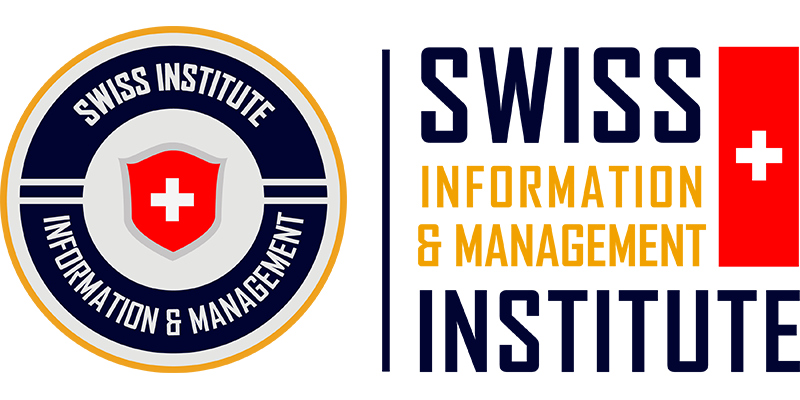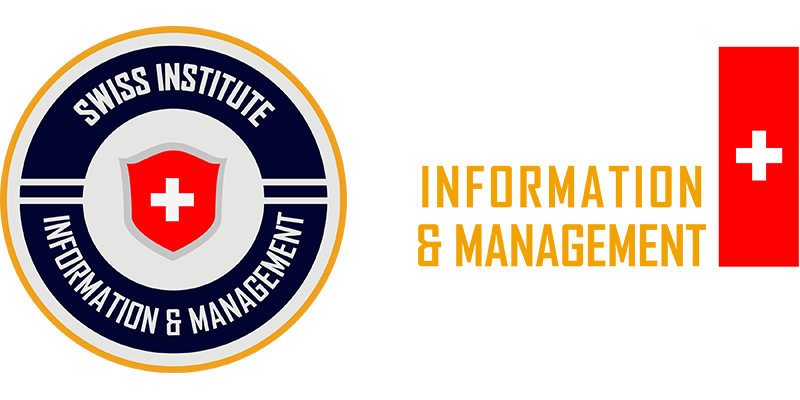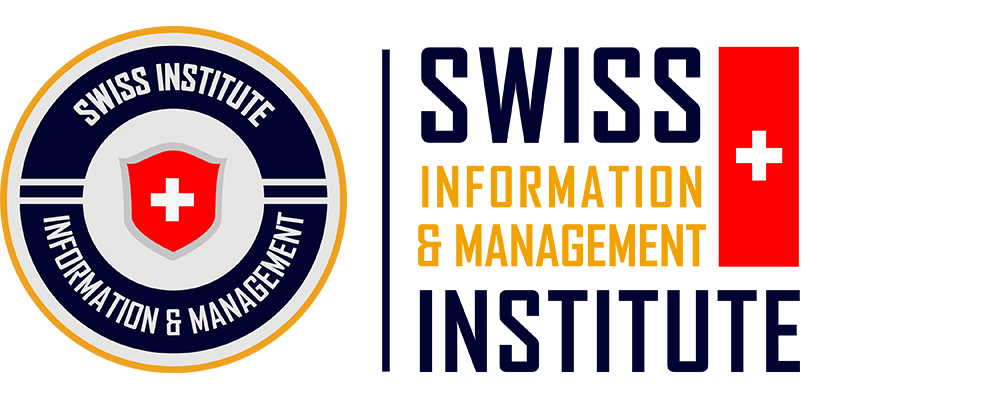Master of Science in Transportation and Logistics
Online learning combined with study abroad at the Asia campus.
The MSc in Transportation and Logistics is a dual Master’s degree program offered by SIMI Swiss and MUST, uniquely crafted and developed by the LSCM of Switzerland (a member of SIMI Swiss). It provides opportunities for both recent graduates and working professionals to explore job opportunities and career growth in the rapidly expanding logistics sector, which faces a shortage of professionals in both operational and academic roles.
Designed for working professionals, SIMI provides an academic support system to ensure students are well-prepared for success. Students have the opportunity to participate in networking activities at MUST’s campus, which support the expansion of their professional and social connections.
Along with globally recognized qualification, the SIMI Swiss Master program understands what students need:
- Fully Accredited & Recognized
- Receive a qualification from Malaysia University of Science and Technology – a qualification with international recognition
- Ability to take the exam to receive a Certified Sustainable Supply Chain Professional from ISCEA
- The learning mode combines Live Class with study abroad and networking activity at MUST’s Campus
- Academic Support While Studying
- Study the original MUST program
- Tuition fee support & Investment Efficiency
Qualifications within a Master Program:
- Master of Science in Transportation and Logistics from the Malaysia University of Science and Technology.
- Optional: Master of Science in Logistics and Supply Chain Management from the Swiss Information and Management Institute (Awarded upon SIMI’s recognition of results from MUST through the APEL.Q process).
Fully Accredited & Recognized
Malaysia University of Science and Technology is recognized by the Ministry of Higher Education (DU008(B)), and the program is nationally accredited by the Malaysian Qualifications Agency (A8621).
Online Learning & Study Abroad
The program is designed for working professionals, combining online learning with study abroad at the Malaysia campus.
Pro-Certification
Upon graduation, learners will be equipped with sufficient knowledge to take the Certified Sustainable Supply Chain Professional (CSSCP) examination issued by ISCEA.
Academic Support System
The academic support system helps students overcome challenges so they can focus solely on excelling in their studies.
Courses & Learning Outcomes
1. Transportation Systems (MTL501)
Overview
- Covering the fundamentals of transportation systems, including their impact on global commerce, society, and the environment.
- Focusing on analyzing transportation networks across modes (road, rail, air, and maritime), exploring emerging technologies like autonomous vehicles and smart traffic management, and addressing sustainability challenges in the transportation sector.
Unit Aims
- Analyze transportation system issues and performance.
- Apply models to optimize transportation operations.
- Develop strategies for improving transportation networks using new technologies.
Course Details
This course is accredited and mapped to National Occupational Standards. It can also be accumulated towards earning a Master Award from SIMI Swiss if taken independently.
- View details on Learning Outcomes, Topics, and Suggested Readings HERE.
2. Logistics Systems (MTL510)
Overview
- Logistics systems within supply chains, emphasizing key functions such as transportation, inventory management, and distribution.
- The role of technology (IoT, blockchain) in logistics optimization and address challenges in global supply chains, including risk and regulatory issues.
Unit Aims
- Understand logistics functions and their role in supply chains.
- Analyze decision-making trade-offs in logistics.
- Apply logistics technologies to improve performance.
Course Details
This course is accredited and mapped to National Occupational Standards. It can also be accumulated towards earning a Master Award from SIMI Swiss if taken independently.
- View details on Learning Outcomes, Topics, and Suggested Readings HERE.
3. Supply Chain Management and Design (MTL513)
Overview
- An in-depth look at supply chain management, focusing on design, optimization, and risk management.
- The importance of demand forecasting, procurement, and sustainability, with a focus on using technology to enhance supply chain performance.
Unit Aims
- Describe core supply chain principles.
- Analyze risk and uncertainty in supply chains.
- Design resilient and sustainable supply chains.
Course Details
This course is accredited and mapped to National Occupational Standards. It can also be accumulated towards earning a Master Award from SIMI Swiss if taken independently.
- View details on Learning Outcomes, Topics, and Suggested Readings HERE.
4. AI and Business Analytics (MTL3243)
Overview
- Introducing AI and business analytics, focusing on their role in enhancing business decision-making.
- Understanding machine learning, big data analytics, and AI applications in various industries such as logistics, finance, and healthcare.
Unit Aims
- Understand key AI and analytics concepts.
- Integrate AI tools into business decisions.
- Evaluate ethical considerations in AI applications.
Course Details
This course is accredited and mapped to National Occupational Standards. It can also be accumulated towards earning a Master Award from SIMI Swiss if taken independently.
- View details on Learning Outcomes, Topics, and Suggested Readings HERE.
5. Maritime Logistics (MTL505)
Overview
- Examing maritime logistics, focusing on shipping operations, port management, and global shipping routes.
- Understanding an exploration of technologies like GPS and blockchain, as well as environmental and regulatory challenges facing the maritime sector.
Unit Aims
- Understand maritime logistics in global trade.
- Analyze the impact of regulations and sustainability in maritime logistics.
- Apply strategies to improve port operations and shipping networks.
Course Details
This course is accredited and mapped to National Occupational Standards. It can also be accumulated towards earning a Master Award from SIMI Swiss if taken independently.
- View details on Learning Outcomes, Topics, and Suggested Readings HERE.
6. Transportation Policy and Strategy (MTL506)
Overview
- Focus on the development and analysis of transportation policies and strategies.
- Background in transportation planning, regulatory frameworks, sustainable transport systems, and the roles of both government and private sectors in shaping transportation policy.
Unit Aims
- Examine the role of transportation policy in economic and social development.
- Analyze the strategies for effective transportation planning and policy formulation.
- Evaluate sustainable transportation policies and their global impact.
Course Details
This course is accredited and mapped to National Occupational Standards. It can also be accumulated towards earning a Master Award from SIMI Swiss if taken independently.
- View details on Learning Outcomes, Topics, and Suggested Readings HERE.
7. Sustainable Supply Chain (MTL1094)
Overview
- Covers the principles of sustainability in supply chain management, exploring strategies for minimizing environmental impact and ethical sourcing.
- Focuses on creating sustainable practices within supply chains while maintaining efficiency and profitability.
Unit Aims
- Understand the concept of sustainability in supply chains.
- Analyze the environmental and ethical considerations in supply chain management.
- Develop strategies to build sustainable and ethical supply chains.
Course Details
This course is accredited and mapped to National Occupational Standards. It can also be accumulated towards earning a Master Award from SIMI Swiss if taken independently.
- View details on Learning Outcomes, Topics, and Suggested Readings HERE.
8. Operations Management (MTL1114)
Overview
- Focuses on the fundamentals of operations management, including production processes, quality control, capacity planning, and inventory management.
- Explore strategies for improving efficiency and productivity in operations.
Unit Aims
- Understand key concepts in operations management.
- Apply strategies for process optimisation and quality control.
- Analyse the impact of capacity planning and inventory management on operations efficiency.
Course Details
This course is accredited and mapped to National Occupational Standards. It can also be accumulated towards earning a Master Award from SIMI Swiss if taken independently.
- View details on Learning Outcomes, Topics, and Suggested Readings HERE.
Master Thesis Stage
1. Research Methods (MTL504)
Overview
- Introduces research methods used in logistics and supply chain management, including qualitative and quantitative approaches.
- Focuses on the design of research projects, data collection, analysis, and the interpretation of results.
Unit Aims
- Develop the skills to design and conduct research projects.
- Understand various research methods and their applications in logistics.
- Analyze and interpret research findings to inform business decisions.
Course Details
This course is accredited and mapped to National Occupational Standards. It can also be accumulated towards earning a Master Award from SIMI Swiss if taken independently.
- View details on Learning Outcomes, Topics, and Suggested Readings HERE.
2. Research Project (MTL590)
Overview
The Research Project is the culminating experience for students in the MSc in Transportation and Logistics program. This module allows students to apply the research methodologies, knowledge, and skills they have gained throughout their studies to a significant, real-world logistics or supply chain management problem. Students will work independently under the guidance of an academic supervisor to conduct in-depth research, analyze complex issues, and propose actionable solutions.
Unit Aims
- To conduct independent research that integrates concepts from logistics, transportation, supply chain management, and related fields.
- To critically evaluate existing literature and apply relevant research methodologies to address a specific problem or issue within the transportation and logistics sectors.
- To develop problem-solving and analytical skills that allow students to generate valuable insights and recommendations for the industry.
- To enhance skills in project management, report writing, and academic presentation, ensuring that the research findings are effectively communicated to both academic and professional audiences.
Thesis Structure
- Project Proposal: Students will begin the research project by identifying a relevant and specific research question. They will prepare a project proposal, which includes the research objectives, methodology, literature review, and expected outcomes.
- Data Collection & Analysis: Throughout the project, students will collect primary and secondary data, utilizing various research methods (qualitative, quantitative, or a mix of both). They will analyze the data to address the research question effectively.
- Final Report: The project culminates in a detailed research report that outlines the problem, methodology, findings, and recommendations. The report must demonstrate critical thinking, academic rigor, and practical relevance to the industry.
- Presentation: Students will present their research findings in front of a panel of academic supervisors and industry experts. This presentation will test their ability to communicate their research outcomes clearly and professionally.
Learning Outcomes
- Develop advanced research and analytical skills.
- Demonstrate the ability to apply theoretical knowledge to real-world logistics and supply chain challenges.
- Produce a high-quality research report and professional presentation.
- Contribute to the development of the logistics and transportation fields by providing innovative solutions to industry problems.
Entry requirements & Learning methods
1. Entry Requirements
In addition to the entry requirements, candidates applying to the program are also assessed for their suitability by the admissions committee before joining the program to ensure that they can acquire and benefit from the program.
Entry requirements:
To enroll this program, learners must possess one of the criteria below:
- A Bachelor’s qualification in Majors from accredited universities;
- Or a Level 6 EQF diploma or an equivalent qualification from organizations that are authorized to issue qualifications and have been accredited.
English requirements:
If a learner is not from a predominantly English-speaking country, proof of English language proficiency must be provided.
- IELTS: 6.0
- TOEFL iBT: 60
- Pearson Test of English: 59
- Cambridge English Qualifications and Test: 169
Please note:
- In case of not having an English proficiency certificate, the candidate can provide it within 6 months.
- SIMI and MUST reserve the right to make admissions decisions based on the requirements of recognized agencies and the global quotas of the program.
2. Learning methods
The program lasts 1.5 academic years and is delivered in a flexible blended model, combining Live Classes with on-campus study at Malaysia University of Science and Technology (MUST).
This structure allows students to benefit from both virtual and in-person academic experiences. In addition, comprehensive research support is provided through the university's BLMS, ensuring continuous academic guidance and access to essential resources throughout the program.
3. Academic Support
We understand that pursuing an accredited postgraduate program can be both exciting and challenging, especially for busy adult learners. To help you overcome these challenges, we’ve created the SIMI Swiss Supporting Systems, designed to guide you through any difficulties during your studies.
For a full overview of the support available, be sure to watch our informative videos, offering help at every stage of your academic journey.
Program accreditations
1. Accreditation of Malaysia University of Science and Technology
The Malaysia University of Science and Technology (MUST) is a university established with the support of the world’s top-ranked university, Massachusetts Institute of Technology (MIT) USA, through a governmental agreement and cooperation. It has achieved the following accreditations:
- Accredited by the Accreditation Service for International Schools, Colleges and Universities (ASIC) at the highest level (Premier Institution);
- Recognition by Malaysia’s national examination body – MQA. See more HERE.
- The MSc in TL Program is recognized by Malaysia’s national examination body – MQA. See more HERE.
- Attainment of the highest standards (5 stars) according to QS Ranking for teaching quality and graduate employability;
- Recognition by the Chartered Manager Institute (CMI) United Kingdom;
- Membership recognition by EFMD;
- Recognition by ISCEA (International Supply Chain Education Alliance), the world’s first organization acknowledging experts in Logistics and Supply Chain Management.
2. Program recognition from ISCEA
About ISCEA Certified Sustainable Supply Chain Professional (CSSCP):
- The first and most advanced professional certification in supply chain management.
- ISCEA Certified Sustainable Supply Chain Professional (CSSCP) is implemented by many leading universities (See more about the ISCEA CSSCP program implemented by the University of Cambridge HERE)
- Refer to the tuition fee of the ISCEA CSSCP program HERE.
3. Parnership Confirmation from MUST
- The Letter confirming the partnership between Malaysia University of Science and Technology and SIMI Swiss (issued by MUST): CLICK HERE
4. Parnership Confirmation from SIMI
- The Letter confirming the partnership between Malaysia University of Science and Technology and SIMI Swiss (issued by SIMI): CLICK HERE
You will get
Fully Accredited & Recognized
Subsidies and investment efficiency
Academic Support
All Master' Programs (Asia Campus)
Fully Accredited
Multi Recognition
Master of Science in Transportation and Logistics
Powered by LSCM Institute of Switzerland
Master of Science in Information Technology (By Research)
Powered by Swiss IT Institute
Master of Science in Information Technology (By Coursework)
Powered by Swiss IT Institute
Master of Business Administration
Powered by BizSchool of Zug
Master of Business Administration (ODL)
Powered by BizSchool of Zug
Master of Business Administration in Human Resource Management
Powered by BizSchool of Zug
Master of Science in Healthcare Management
Powered by Swiss Healthcare School


